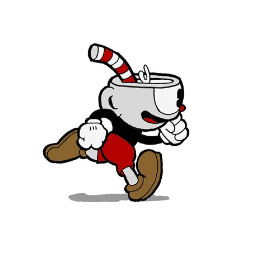I was diagnosed 7 years ago as autistic, though I didnt realise at the time it was a diagnosis, I was informed a few years later that what I thought was a specialists opinion was actually a formal diagnosis. But due to family history, my adhd was addressed first. They were supposed to refer me to autism specialist after the adhd stuff but due to mistakes I got discharged and it took a few years and a few phone calls to correct the mistake. So I knew I have adhd, I understood I was a bit autistic. Fast forward to this week, I got a call after my assessment, and I score extremely high for autism. I was a bit surprised by that, as I function mostly quite well in my day to day despite some things maybe being a little harder for me than other people. My specialist explained that an ability to function does not measure someones level of autism. So now I guess im very autistic.
Its bittersweet. Its helpful to know and im being given resources and access to groups for coping and one that helps you stay in work - which is the important one for me as before my current job where my manager has been very patient and understanding, I have always had a lot of problems with employment. Im still not quite processing it fully, but Ive felt some hints inside myself that this does also make me feel a bit sad, but I probably wont be sure of that until later on one night when I cant get to sleep due to delayed processing.
Groups like this and others have been a big help throughout my diagnoses journey, and alongside reading about autism research and speaking with people in these groups, ive learnt a lot about myself and ways to manage my daily life and lessen the impact of everything.
I still feel like a bit of an imposter when seeking help, as I am very high functioning, and can pass as quite intelligent in most settings, and working at a job where I often encounter low functioning and even non verbal poung people, its hard to feel like I deserve to ask for help in the first place.


Do you often feel guilty that people use time to help you?
It’s that an autism thing? I always thought it’s just inconvenient for most people and I didn’t want to be incovenient
I’m not a psychologist, so anyone, please correct me if I am wrong.
It’s a form of people pleasing which is a characteristic of autism.
Not knowing when someone wants to help you or just is just helping you without any benefit to them is a deficit in social communication.
I don’t like to assume things but do you like helping people but don’t like it when people you?
Fuck me and here I thought that was just a personal flaw. That’s a lot to chew on, in a good way. Thanks for explaining it.
Yeah, I’d say so. I think it’s time to finally get diagnosed lol
Knowing something, even this one characteristic we are talking about, can give you a better understanding and lead to a more balanced life. Good luck.
Thank you so much. Appreciate it.
Maybe not strictly, but yes it is.
This was ingrained into me. When I needed some form of help but was interpreted as not needing it for whatever reason I’d get a “do you know what x person went through for you??” Style lecture, especially if I had the audacity to still be experiencing a problem after
I do, yes. Not with everything, but particularly around things like emotional support, I’ve always evaded. It used to bring on a flood of very overwhelming emotion that I suppose I wasn’t in touch with until someone pointed out to me: “this is bad, are you sure you’re okay?”
I’ve honestly never felt this. Any time someone is willing to help me I’m more than happy. But at the same time I try to pay it forward and help them, or at least someone else.